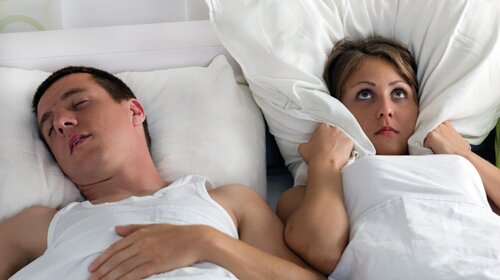The presence of significant sleep apnoea may be strongly suspected from the history. Often the patient’s partner has read an article about sleep apnoea and recognizes that this must be what their partner has. Once sleep apnoea is suspected then a sleep study is done to confirm the diagnosis. A variety of signals can be measured during sleep, without having to use any painful needles or devices. Oxygen levels in the blood can be continuously measured from a clip on the finger and breathing monitored from belts around the chest and tummy. Sleep quality itself can be estimated from electrodes on the head, or from the number of body movements made during sleep. Video recordings with sound are often used so that the doctor can actually see how badly the breathing is obstructed and the sleep disturbed. Although such sleep studies usually involve a night’s stay in hospital, research is underway to develop reliable tests that can be done in the patient’s own home.
Many people consider that once you are asleep that very few things can go wrong. Unfortunately this is not true and the problems of sleep deprivation are being constantly investigated by amongst others HM Government. Two groups have been set up to assist in the investigations. One is a Primary Care Group which will be contacting every GP surgery in England & Wales inviting a practice member to a seminar covering sleep deprivation. The other is in conjunction with the Department of Transport and Department of Health are investigating problems with the effects of sleep deprivation, this investigation is a direct result of the Selby disaster.
View some Case Studies
Case Study by Roger Paterson
CPAP changed my life! by Peter G. Morgan
PDF Obstructive Sleep Apnoea: accidents waiting to happen. Published/Reproduced by kind permission of Dr Melissa Hack and The Airways Journal


